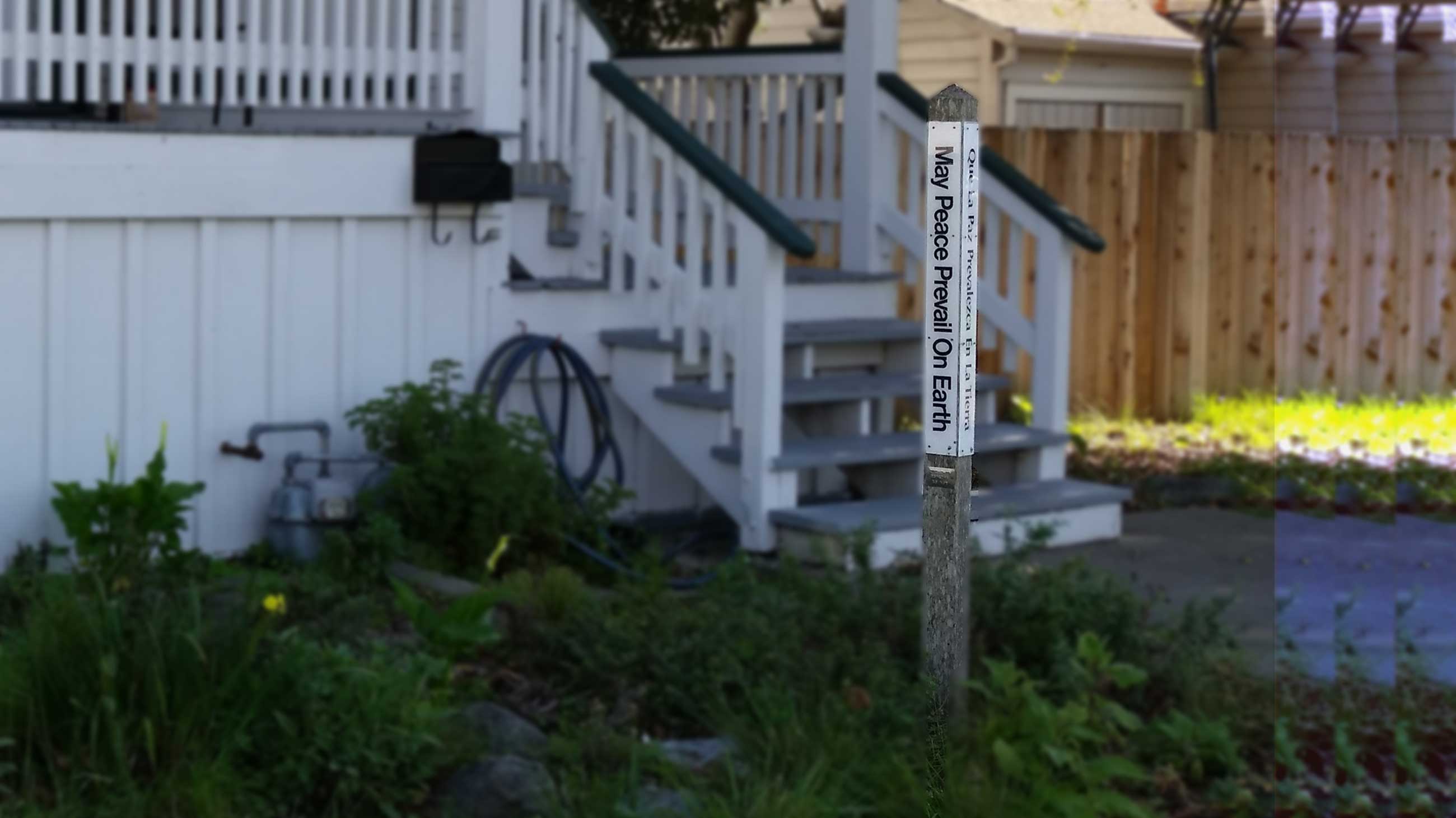What good is it, my brothers and sisters, if someone says they have faith but does not have works? Can that faith save him? If a brother or sister has nothing to wear and has no food for the day, and one of you says to them, “Go in peace, keep warm, and eat well,” but you do not give them the necessities of the body, what good is it? So also faith of itself, if it does not have works, is dead. –James 2:14-17
FEBRUARY 2020
Dear Friends,
In late January Catholic Worker Hospitality House bid a sad farewell to our long-time volunteer Lioba Moulton who moved to Tracy, CA to live with her recently widowed sister. Twenty years ago Lioba started delivering soup and sandwiches to our dining room once a week. Immediately, there was a marked improvement in the quality of our breakfast, which was definitely noticed and appreciated by our guests. “Who made the soup today? It’s much better than usual.” Upon retirement, Lioba was soon coming to the dining room two to three days a week with soup, sandwiches, trays of scrambled eggs, hot dogs, casseroles for the shelter dinner, apple crisp and other dessert items, and whatever else she could get donated from her local grocery store. Without having to go to work she was able to stay to serve the food she brought. In short time Lioba became an integral part of the dining room community.
Guests and volunteers alike will miss Lioba’s regular delicious food contributions to the dining room, but we doubt she is gone for good. Knowing Lioba we fully expect her to occasionally show up with tasty food for our morning serving. Service is just such a part of who she is.
Catholic Worker Hospitality House is neither the first nor the only place Lioba has been of service. When her son was young, she was active in his schools, as well as his various extra-curricular activities; for decades she has been active at St. Peter’s Parish in Pacifica, particularly in the RCIA program; when she worked South of Market in San Francisco she would regularly make and deliver sack lunches for folks living on the street outside of her office building. Lioba epitomizes a life of service motivated by a deep and abiding faith that is an integral part of her daily life. If faith without works is dead then Lioba’s faith is alive and well.
While we appreciate Lioba for all the food she brings us, we’ve grown to love her for the joyful, loving presence she brings to our dining room. One would think that life around Catholic Worker Hospitality House would be grim and dour. We’re dealing with people who lack material resources, many of who are homeless, and many who might be dealing with substance abuse and/or mental health issues. It just seems like a recipe for a depressing environment. But surprisingly it is a very joyful place. While we take our work seriously, the staff and volunteers are unusually happy and playful, which seems to rub off on those we serve. Lioba epitomizes this joyfulness. Where does all this joy come from? I think it has to do with the nature of being of service to others. It’s so easy to get wrapped up in our own petty concerns. But when we get beyond our own self-seeking and selfishness, when we focus on serving others, when we are engaged in something bigger than ourselves that doesn’t necessarily benefit us, then a certain joy enters our life. A joy that is infectious and transforming.
I know I’m preaching to the choir with this letter. If you’re reading this you’re probably already actively engaged in a life of service to others, along with having a deep and abiding faith. I’m also sure many of you have heard your own story in this letter, “Yep, that me. School, check. Church, check. Direct service to those in need, check.” You know the benefits of service: strangers become friends, a broadening of life by experiencing new places, people and ideas, which leads to more engaged and full life.
As always, we thank you all for your ongoing support of our work with those in need. Your kindness helps us continue being of service to others through the daily practice of the Works of Mercy.
In Loving Service,
Peter Stiehler
For all of us at Catholic Worker Hospitality House
CANCELLED DUE TO CONCERNS SURROUNDING COVID-19
JOIN US FOR A BOOK READING of TO SERVE THE PEOPLE by LeRoy Chatfield
St. Bruno’s Catholic Church, St. Gabriel’s Hall
Friday, March 20 at 7:30 pm
Please join us for an entertaining and informative evening as LeRoy Chatfield will be reading from his book To Serve The People: My Life Organizing With Cesar Chavez and the Poor and sharing stories from his remarkable life over fifty years of service in the struggle for justice and equality. LeRoy is a former organizer who worked with Cesar Chaves to get union recognition for California farmworkers, managed the Northern California general election campaign for Jerry Brown in 1974, organized the California Conservation Corps, and built the largest volunteer charitable organization in Sacramento (Loaves and Fishes) to feed the hungry and shelter the homeless, among many other activities. He is also the father of Catholic Worker Hospitality House co-founder Kate Chatfield.

